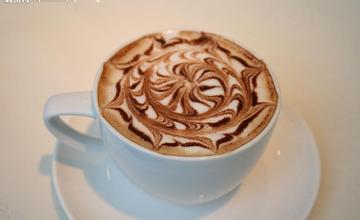A brief introduction to the planting Market Price of Cupid Fine Coffee Bean varieties with strong Flower aroma

The coffee farmers here, about 50 of them in a small cooperative, produce coffee the traditional way in the Borquites-growing it in a near-natural environment. Although the yield is not high, it can maintain a rich ecological environment, and the soil quality can be maintained or even improved. Natural cultivation methods are not only beneficial to the environment, because coffee fruit grows slowly, so it is easier to grow high-quality and very good flavor coffee beans. The farmers manually harvest the whole berries and send them to the nearby Cafede ELEta S.A. for post-processing, which is about 4 km away from the farm and has a modern laboratory attached for quality control and manual screening.
What is even more surprising is that on the basis of very good quality, the price of this coffee bean is very close to the people. What makes this coffee bean special is that it is made up of three varieties, 30% of which are the famous rose summer, giving this coffee a distinct rose summer flavor.
Information obtained from green bean dealers indicates that, due to the history of the estate, early rosewood varieties were mixed with Kadura and Kaduai coffee trees in pursuit of yield at that time, and coffee farmers did not reclassify them for easy picking, but directly mixed the three varieties. After that, due to the fame of Guixia and the high price, the processing plant began to carry out fine washing treatment + honey treatment for such a coffee bean. The coffee thus processed has a clean taste, emphasizing bright and lively fruit acids, as well as clear fruit and floral flavors. Honey processing also adds sweetness and caramel taste.
Name: Panama Cupid
[Origin]: Boquete Baru Volcano Region
[Variety]: Kaduai, Kadura, containing Guixia Geisha 30%
[Treatment method]: honey treatment and traditional washing
[Baking degree]: Medium to light baking
[Raw Bean Specification]: 17-18 mesh
Panama is located in Central America on the Isthmus of Panama, bordering Colombia to the east and the Pacific Ocean to the south.
Costa Rica to the west and the Caribbean Sea to the north. The land is S-shaped connecting North America and South America, and the Panama Canal connects the Atlantic Ocean and the Pacific Ocean from north to south, known as the "World Bridge". [5]Panama has an area of 75517 square kilometres, a length of 772 kilometres and a width of between 60 and 177 kilometres. The coastline is 2988 km long and the land boundary is 555 km long. Panama is located between 7° N and 10° W and between 77° N and 83° W. The Panamanian flag was adopted on November 3, 1904. The flag consists of four rectangles of white, red and blue. White symbolizes peace; red and blue represent the Liberal Party and Conservative Party of Panama, respectively, and are also symbols of the unity and struggle of the two parties for the interests of the nation. The blue star on the upper left represents loyalty and integrity, and the red star on the lower right represents the authority of the law. The design of the crosshairs divided into four sections represents Panama's location at the junction of South America, North America, the Atlantic Ocean and the Pacific Ocean. Red, blue and white are the colors of the United States Star Spangled Banner, which supports Panama's independence. This flag was designed by Manuel Amador Guerrero, the first President of Panama. The current Panamanian government was formed on July 1, 2009. The main members are: Vice-President Juan Carlos Barrera, Minister of the Presidency Jimmy Papadimiriou, Minister for Foreign Affairs Fernando Núñez Favre, Minister of the Interior Jorge Ricardo Favre, Minister of Public Security Jose Raul Murino, Minister of Economy and Finance Frank George de Lima, Minister of Industry and Commerce Ricardo Quijano, Minister of Agricultural Development Oscar Armando Osorio Casar, Minister of Health Javier Diaz, Housing Minister Yasmina Pimentel (female), Labor Minister Alma Lorena Cortez (female), Social Development Minister Guillermo Ferrufino, Education Minister Lucy Molinal (female), Public Works Minister Jaime Ford, Small and Medium Enterprises Minister Cicero Brillo (female), Canal Minister Robert Roy, Tourism Minister Salomon Samar
Due to the particularity of this cupid in variety, we use moderate light baking to complete the final flavor trend of this bean, so that it not only has the unique flower fragrance, white grape, caramel, honey, black tea feeling is also especially outstanding, but also has the sweet feeling and smoothness of honey. The aroma and ending rhyme are very persistent, and the taste performance is quite amazing.
Panamanian coffee is sorted and numbered in small batches designed to be small in volume for optimal management, and the sorting number allows buyers to understand and track information throughout the process.
Due to its small volume, Panamanian coffee products are based on specialty coffee. The country supplies its high-quality products to specialized shops in countries all over the world, such as Denmark, Britain, Greece, Norway, Sweden, Korea, Japan, China Taiwan Province and American coffee, which was first brought to Panama by European immigrants in the 19th century. In the past, Panama's reputation for coffee was not very good, and its production was only 1/10 of that of its neighbor Costa Rica, but now the coffee industry's attention to fine coffee has made Panama more and more interested in growing coffee. Panama's geographical advantage is that it has many distinctive microclimates suitable for coffee cultivation, and Panama also has many dedicated and professional coffee growers. This means that Panama has a lot of very good coffee, but this coffee is often associated with high prices.
The high coffee prices in Panama are mainly caused by the following factors:
Land Price: For the people of North America, they are very eager to buy a stable and beautiful land at a cheap price. Panama is one such place;
Gesha is one of the most original coffee varieties in the world. Some people call it "geisha". Some people translate it as "rose summer". Her name contains gentle and floral fragrance. It is an unforgettable coffee. It is also the winner of international bidding and cup testing competitions. And it has received extremely high evaluation! Good geisha coffee, will have a strong floral aroma and citrus aroma, bright and elegant acidity, soft taste of Qing Ying, at the same time extremely delicate finish!
Boquete is a volcanic area at high altitude because Baru Volcano brings fertile soil, high terrain, wet and cold air, different sunshine, abundant rainfall, and rivers flowing through it, resulting in excellent Panamanian fine coffee. This batch of coffee comes from the same production area as Emerald Manor, which happens to be located in a continuous valley and ridge, thus forming several microclimates. Coffee produced in different areas has its own characteristics. Fresh and comfortable citrus notes, bright and colorful Southeast Asian fruit notes, delicate floral intertexture exudes a very elegant and elegant flavor.(Geisha Mountain, which happens to be the same as Japanese geisha) exported to Kenya, Tanzania and Costa Rica, transplanted to Panama in the 1960s, and then survived for nearly half a century before it became a blockbuster, defeating the ever-winning varieties such as Boben, Kadura, Kaduai and Tibika, and winning the first prize in the 2005, 2006 and 2007 Panama National Treasure Bean Cup Test Competition. In 2007, the International Famous Bean Cup sponsored by the American Fine Coffee Association (SCAA) won the championship again, and the bidding price was sold at 130 US dollars per pound, setting a record for the highest price in the history of competition beans. It is reported that the subsequent Panama National Treasure Bean Competition will be divided into two groups: Rose Summer and Non-Rose Summer, so as not to be robbed of the glory of other varieties by Rose Summer. Guixia belongs to the Tibika family, but after leaving Ethiopia for more than 70 years, she became famous. It also fulfilled the saying that Ethiopia is the treasure house of Arabica genes. Any donation of a variety abroad is enough to make waves in the coffee market.
This coffee is composed of three varieties of Guixia, Kadura and Kaduai. It grows in the volcanic area at an altitude of 1600 meters. The processing plant uses fine honey treatment and traditional washing. Panama's special local microclimate leads to abundant rainfall in this area, and the temperature difference between day and night is large. In addition, the volcanic rock soil unique to volcanic areas, as well as careful harvesting and fine processing, make this coffee outstanding in terms of thickness, acid and high mountain black tea aroma.
The Baru volcano is not only the highest mountain range in Panama, but the sediments produced by early volcanic activity and eruptions bring abundant and very fertile soil, which is rich in nutrients, especially phosphorus and sulfur. When mixed with clay, together with unique climatic patterns, it forms an environment suitable for the growth of high-quality coffee. The dense forest and the large number of species form the overall biodiversity.
Important Notice :
前街咖啡 FrontStreet Coffee has moved to new addredd:
FrontStreet Coffee Address: 315,Donghua East Road,GuangZhou
Tel:020 38364473
- Prev

A brief introduction to the origin, development, history and culture of Cupid boutique coffee beans with bright taste
According to the information obtained from the raw bean merchant, due to the historical reasons of the manor, in order to pursue yield at that time, the early rose summer varieties were mixed with the coffee trees of Kaddura and Kaduai, and in order to facilitate picking, coffee farmers did not reclassify them, but directly mixed the three varieties. After that, as Rosa rose to fame, the price soared, and the processing plant
- Next

A brief introduction to the cultivation of elegant Cupid boutique coffee beans, geographical location, climate and altitude
This coffee, composed of Rosa, Kaddura and Kaduai, grows in the volcanic area at an altitude of 1600 meters. The treatment plant uses fine honey treatment and traditional washing. The special local microclimate of Panama leads to abundant rainfall in this area and a large temperature difference between day and night. Coupled with the unique volcanic rock soil in the volcanic area, as well as meticulous harvesting and fine treatment, this coffee no matter
Related
- Detailed explanation of Jadeite planting Land in Panamanian Jadeite Manor introduction to the grading system of Jadeite competitive bidding, Red bid, Green bid and Rose Summer
- Story of Coffee planting in Brenka region of Costa Rica Stonehenge Manor anaerobic heavy honey treatment of flavor mouth
- What's on the barrel of Blue Mountain Coffee beans?
- Can American coffee also pull flowers? How to use hot American style to pull out a good-looking pattern?
- Can you make a cold extract with coffee beans? What is the right proportion for cold-extracted coffee formula?
- Indonesian PWN Gold Mandrine Coffee Origin Features Flavor How to Chong? Mandolin coffee is American.
- A brief introduction to the flavor characteristics of Brazilian yellow bourbon coffee beans
- What is the effect of different water quality on the flavor of cold-extracted coffee? What kind of water is best for brewing coffee?
- Why do you think of Rose Summer whenever you mention Panamanian coffee?
- Introduction to the characteristics of authentic blue mountain coffee bean producing areas? What is the CIB Coffee Authority in Jamaica?

